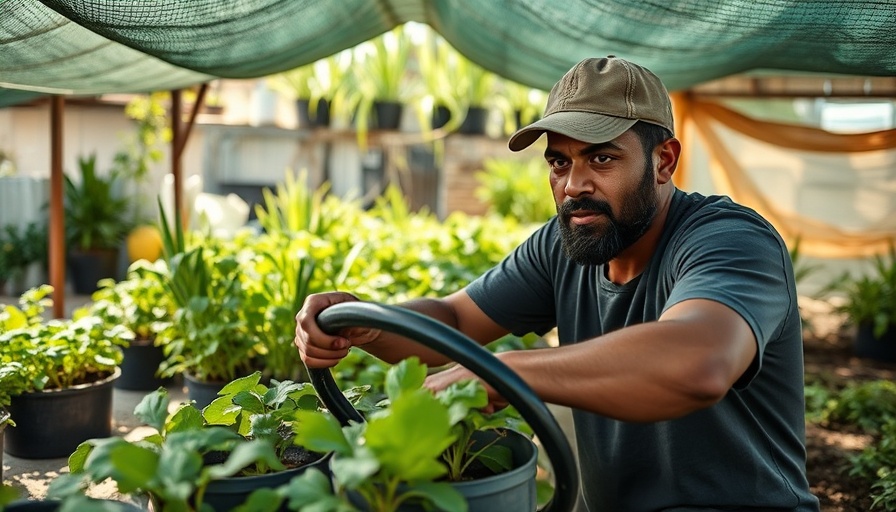
Long Beach's Urban Farm Faces Struggles from Community Disruption
Farm Lot 59, a cherished urban farm located next to Willow Springs Park in Long Beach, has become the latest victim of a series of unfortunate events—including vandalism, theft, and an arson fire. This community green space, founded by Sasha Kanno in 2010, has faced ongoing challenges that have significantly impacted its operations and the local environment. The recent May 1 fire destroyed vital resources like a compost bin, hand-painted signs, and bee boxes, putting further strain on this already struggling farm.
The Cycle of Vandalism and Its Consequences
Farm Lot 59 is no stranger to hardship; its staff have reported multiple instances of theft and vandalism over the years. Signs have been defaced with graffiti, fences have been compromised, and even tools that are crucial for maintaining the farm have gone missing. Luna Gaia, who manages the production of flowers, believes the farm has become an easy target for crime, especially following the eviction of an encampment of unhoused individuals from the nearby park. She suggests that the timing of violent acts against the farm may be retaliatory, adding a layer of complexity to the already precarious situation.
Community Connections and Support
Despite the grim circumstances, there’s a silver lining—the community’s unwavering support for Farm Lot 59. When the fire struck, local volunteers stepped up to help clear the debris, showcasing a vital connection between the farm and Long Beach residents. While some members of the community shared their experiences with homeless individuals loitering around the farm, many have expressed sympathy, recognizing the intricate dynamics of urban living. Kathy Miranda, the marketing director at the farm, emphasized that while ongoing thefts are challenging, they have also highlighted the farm’s integral role within the neighborhood.
Barriers to Safety and Reporting
Calls to law enforcement have often yielded little in terms of resolution for these incidents. Farm staff regularly reach out to police but frequently encounter limitations in what can be done post-crime. This inadequacy contributes to a sense of vulnerability among the employees. Miranda articulated that maintaining a secure environment has become a costly part of their operations. When the premise of safety is riddled with unpredictability, it raises serious questions about the wellbeing of workers and the future of Farm Lot 59.
The Importance of Urban Farms
Urban farms like Farm Lot 59 are essential not only for local food production but also for fostering community ties and promoting sustainability. They serve as vital green spaces that can positively influence mental health, provide educational experiences, and increase biodiversity in urban areas. As the farm sells fresh flowers and produce—contributing to local restaurants and charitable organizations like Food Finders—it fulfills a unique niche that should be protected, particularly as urban areas continue to grapple with growth.
Future Perspectives and the Need for Awareness
As Farm Lot 59 seeks to recover from its latest setbacks, it serves as a reminder that urban agriculture requires support, not just in the form of volunteer help but also through policies and community efforts that promote safety and sustainability. The plight of the farm illustrates the broader challenges faced by such initiatives across the nation—challenging the community to reflect on how urban spaces are utilized, respected, and safeguarded. What does it mean for our neighborhoods to have these vital green spaces, and how can we ensure their protection moving forward?
The Call for Action
The story of Farm Lot 59 is not just a tale of hardship; it’s also a call for collective action. As residents of Long Beach, we must advocate for better strategies to secure local farms and advocate for the unhoused populations confronting socio-economic struggles. Every little bit of support can steer Farm Lot 59 toward recovery—whether through volunteering, donating, or simply spreading awareness. The time for community solidarity is now; let’s ensure that our urban farms not only survive but thrive in the spirit of resilience.
 Add Row
Add Row  Add
Add 




Write A Comment